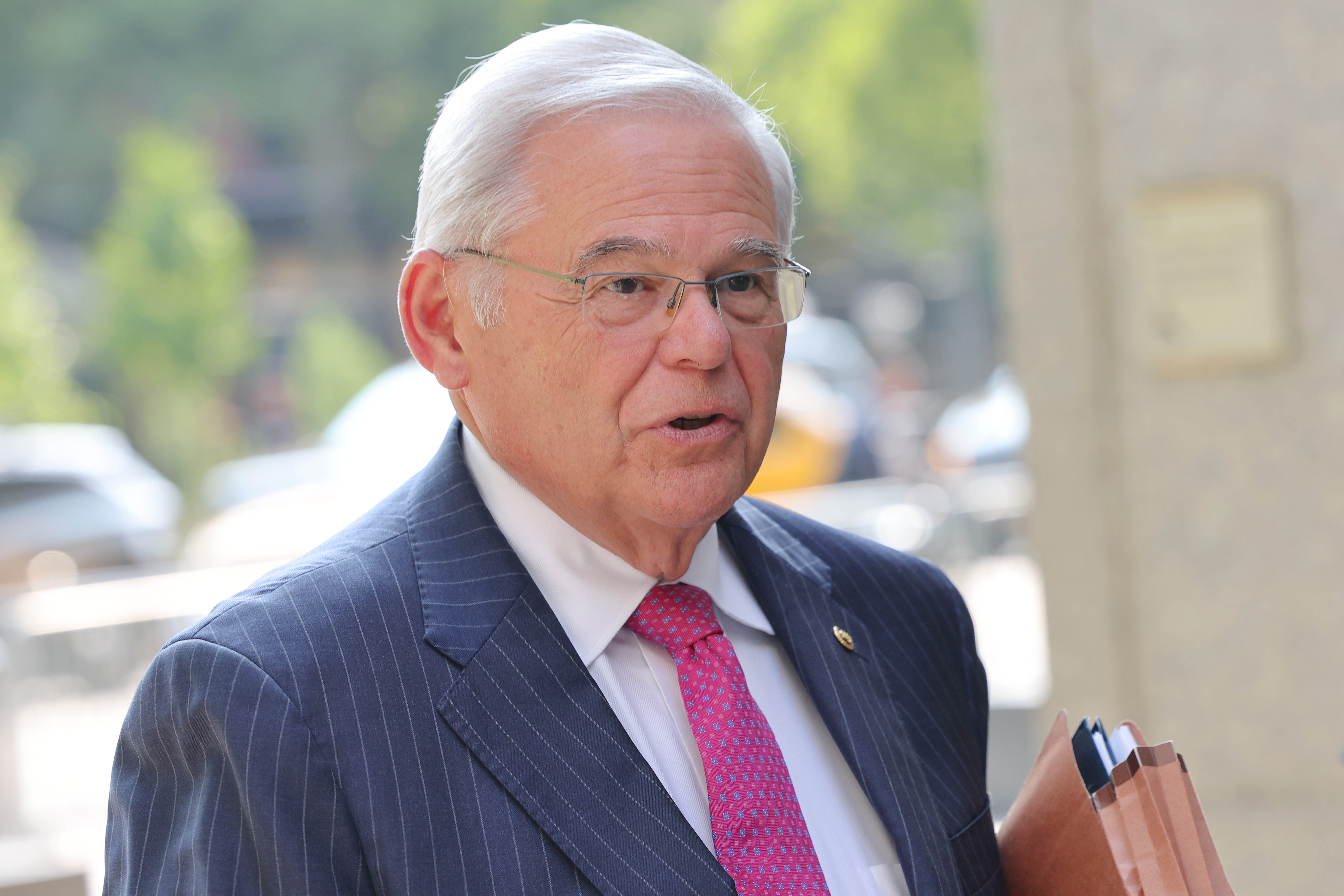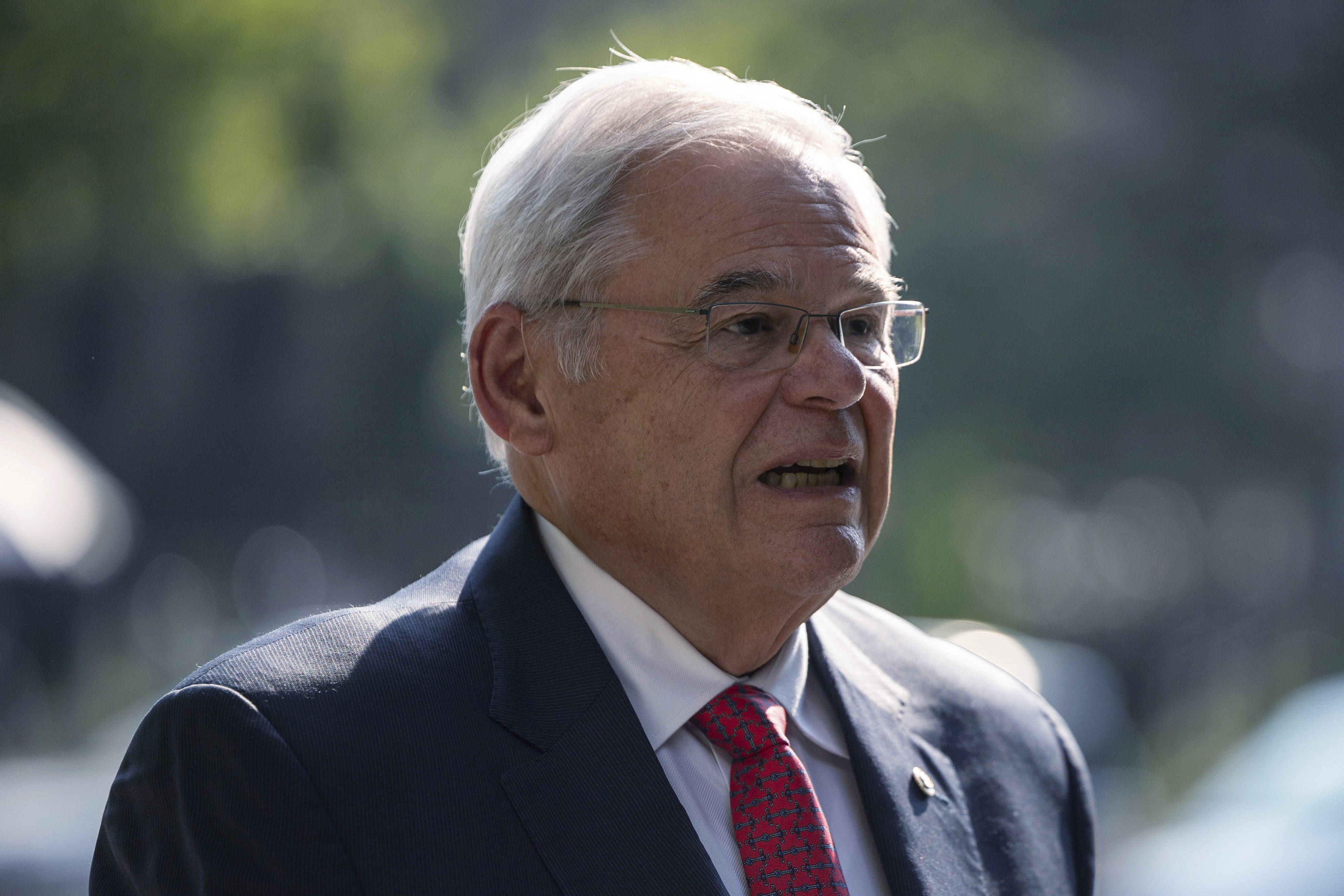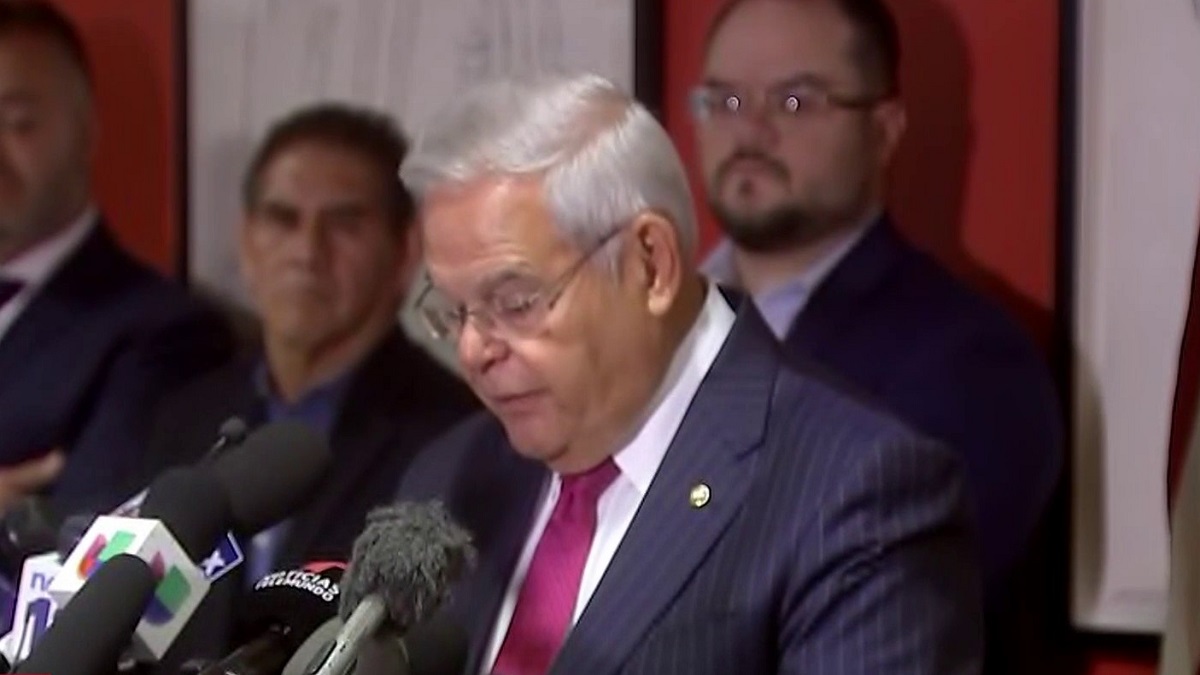A New York City jury was told Thursday it will begin deliberating criminal charges against Sen. Bob Menendez at his bribery trial on Friday after hearing instructions on the law.
Judge Sidney H. Stein began after 4 p.m. to read the instructions to jurors who heard and viewed evidence over two months before listening to a week of closing arguments in Manhattan federal court.
Prosecutors say the Democrat accepted nearly $150,000 in gold bars and hundreds of thousands of dollars in cash from three New Jersey businessmen from 2018 to 2022 to corruptly abuse his power as a senator to their benefit.
Get top local stories in Philly delivered to you every morning. Sign up for NBC Philadelphia's News Headlines newsletter.
Menendez, 70, has pleaded not guilty to numerous charges, including that he acted as a foreign agent for the government of Egypt.
“Looking forward to the jury getting the case tomorrow,” Menendez said as he stepped into a waiting car outside the courthouse.
The New Jersey senator is on trial with two of the businessmen — Fred Daibes and Wael Hana. They too have pleaded not guilty. A third businessman, Jose Uribe, pleaded guilty and testified against the others.
Menendez's wife, Nadine, has pleaded not guilty, though her trial has been postponed after she was diagnosed with breast cancer and underwent surgery.
During four days of closings, attorneys put their spin on testimony and hundreds of exhibits including photographs of gold bars and stacks of $100 bills found during a 2022 FBI raid on the Menendez residence. Prosecutors say the gold and cash, along with a Mercedes-Benz convertible in the garage, were bribe proceeds.
Defense lawyers argued that the gold was among valuables Nadine Menendez inherited from family while the cash largely resulted from Menendez's habit of storing cash at home after his family escaped Cuba in 1951 before his birth with only the cash they had hidden in a grandfather's clock.
During a rebuttal argument Thursday, Assistant U.S. Attorney Daniel Richenthal mocked Menendez's lawyer's attempt to suggest that $95,000 in cash found in a plastic bag inches away from a rack of the senator's jackets belonged to his wife, calling the claim “truly unbelievable.” Cash was found stuffed in some of the jackets.
He also said Menendez helped Egyptian officials get sensitive information about the number of Americans and Egyptians who worked at the U.S. embassy in Egypt — “devastating proof that Menendez put the interests of Egypt above the United States.”
Adam Fee, a Menendez lawyer, said Nadine Menendez kept cash at her residence because she “lived her life largely outside of the banking system” after her family fled a country where their bank accounts and property were taken away.
And he said jurors could infer that Nadine Menendez sold family jewelry or gold and kept the cash she received in bags in the home.
As for the number of employees at the U.S. embassy in Egypt, Fee told jurors that the information was publicly available and he said anything Menendez did was within his responsibilities as a senator who was chairman of the Senate Foreign Relations Committee, a job he was forced to give up after charges were announced last fall.
“It’s not as though engaging with Egypt on diplomacy is like talking to Darth Vader,” he said.




